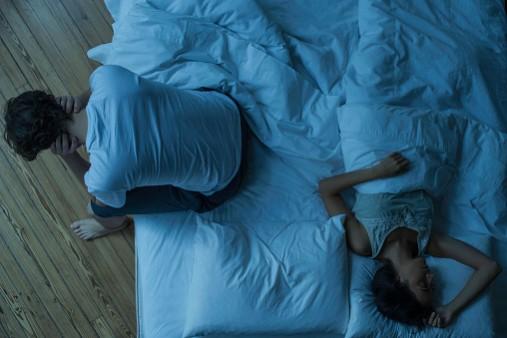
Sleep researchers recommend an average of eight hours of sleep at night to stay healthy. But many people struggle to spend at least six hours a day on the bed because of several reasons, including workload and stress. As a result, they always feel tired and irritable due to lack of energy.
Professor Mark Cropley from the University Of Surrey in Guildford, England, has said that the sleeping habits have changed in "less than a couple of centuries", precisely after the "invention of electricity."
The researcher has blamed "24/7 lifestyle" for sleeplessness. "People simply don't sleep long enough. We tend to stay up late watching television or doing other activities, and delay the time we go to bed," he stated in an article published on Mail Online.
Are you a restless sleeper? Expert shares 4 easy steps for good night's sleep
"Many people who have difficulty switching off from work also have trouble with sleeping because they find themselves thinking about and going over and over work issues while in bed. This can be difficulty in getting to sleep, maintaining sleep, or waking up too early in the morning and not getting back to sleep," he added.
Explaining the consequences of insomnia, Cropley said that "sleep deprivation" can lead to many accidents, including "occupational injuries", as it is "associated with reduced alertness, task performance, decision-making capacity".
"We all have our own natural thresholds concerning the number of hours' sleep we need. Some people need more, others less. If we don't get enough sleep, we develop a 'sleep debt' and, like all debt, this needs to be repaid," the professor added.
The researcher then said that every person has his or her own "natural thresholds concerning the number of hours' sleep" he or she needs. While some people need less sleep, others may need more. "If we don't get enough sleep, we develop a 'sleep debt' and, like all debt, this needs to be repaid," he added.
Cropley further explained that sleep is considered as "the most important recovery mechanism available to man and some people think it may be more influential in terms of longevity than diet, exercise or genetics".
"It always amazes me that for some reason, many people I speak to don't make the link between going to bed late and feeling tired in the mornings. Listen to your body. If you are tired during the day, try going to bed a little earlier," he said.
"Remember the old saying: an hour before midnight is worth two hours after. I guess in their own minds, to many people, 11.30 may not seem that late, but it is if you are tired and fighting the natural urge to sleep," the professor added.
Meanwhile, the researcher has said that people can repay their sleep debt during weekends, "although it seems a shame that you spend a good portion of your quality free time sleeping when you could simply have gone to bed earlier in the week!"











